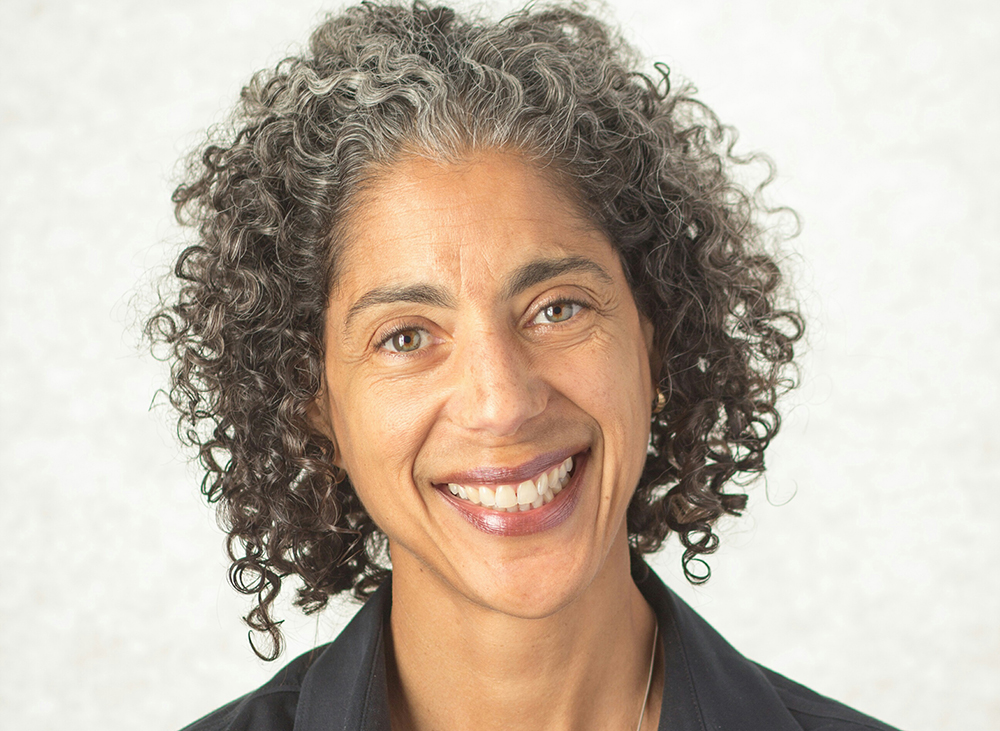Faculty Spotlight: Mary Pattillo
Race and inequalities in the city
Get all our news

Throughout her career, IPR associate Mary Pattillo has delved into "race in the city," studying issues ranging from urban housing issues to the criminal justice system.
“It’s similar to Milwaukee, where I grew up, and where my sociological imagination and curiosity were born,” she recalled.
Her all-black neighborhood in Milwaukee, one of the most racially segregated cities in the United States—like Chicago—included middle-class residents, such as her own family. After attending an all-black elementary school, she attended high school in a wealthy, white suburb through a busing desegregation program. It allowed her to observe racial and class inequalities close up.
Since then, Pattillo’s imagination and curiosity have led her to delve into “race in the city” in Chicago and beyond throughout her research career. This concept imbues her pioneering work on the role of the black middle class, urban housing issues, public education, and the criminal justice system—all of which provide insights into inequality.
The Black Middle Class
Pattillo’s first major study, Black Picket Fences: Privilege and Peril Among the Black Middle Class (University of Chicago, 1999), established her reputation as an urban sociologist who offered a fresh focus on the black middle class. When her work appeared, impoverished African American neighborhoods were the prevailing topic of sociological investigation in black urban life. Her book helped shift scholarly and popular discussion to the black middle class.
To write the award-winning book, Pattillo lived for three years in “Groveland,” a pseudonym for a black middle-class neighborhood on Chicago’s South Side. She interviewed many residents to explore the advantages enjoyed by middle-class African Americans as well as the challenges they still faced. She updated her research with a second edition in 2013, revealing how “Groveland” had changed over the years and tracing the Great Recession’s impact on it.
In Black on the Block: The Politics of Race and Class in the City (University of Chicago, 2007), her second prize-winning book, she examined a changing Chicago neighborhood, North Kenwood-Oakland, where she has lived since 1998. The residents’ conflicts over gentrification, public housing, and home ownership vs. renting illuminated the complexities of the politics of race and class in urban areas.
Education and Race in the City
The interview is one of Pattillo’s key qualitative research tools. In her exploration of school choice in the African American community, she interviewed poor and working-class black Chicago parents as they negotiated the complex process of choosing a public high school.
Although the term “school choice” suggests that parents are empowered and able to choose and control where their children attend school, Pattillo found in 2015 that the system in the Chicago Public Schools led to parents’ frustration and the sense that rather than choosing schools, the schools chose them.
In this and another study of a mostly Latino and African American grade school in New Jersey, co-authored with a sociology graduate student, Pattillo uncovered peoples’ experiences of policy-driven educational change that are different from—or contradict—what policymakers aim to do. For school stakeholders in the New Jersey study, school closure “felt like punishment” rather than an attempt to improve school quality or student outcomes, as policymakers had intended.
Going beyond her scholarship in this area, Pattillo currently serves on the board of directors of Urban Prep Charter Academy, an all-boys public charter high school in Chicago. Although she confesses to having “mixed feelings about charters in general,” she is proud of the school’s accomplishments and sees her involvement as a way “to make a real difference in communities.”
Criminal Justice
Most recently, Pattillo has concentrated on issues of criminal justice. In her earlier work, she discussed gangs and the relationship between gentrification and crime. She is currently in the third year of a large five-year project investigating the impact of fees and fines in the criminal justice system in eight states, including Illinois.
The study, supported by the Laura and John Arnold Foundation, is creating a “legislative landscape” of the statutes that impose monetary sanctions on those convicted of low-level felonies and misdemeanors in each state. It will also include interviews of individuals in each state who have been assessed fines and fees, and of courtroom personnel.
Looking Forward
On the horizon, Pattillo would like to extend a new line of work on “black placemaking.” How do African American residents create “sites of play, pleasure, celebration, and politics” in sometimes hostile urban environments?
She hopes to change the “tenor of her work,” which, she admitted, can be depressing. “I would like to celebrate life in black communities.”
Mary Pattillo is Harold Washington Professor of Sociology and African American Studies.
Photo: Jason Jones of Lake Shore Photos
Published: January 25, 2018.